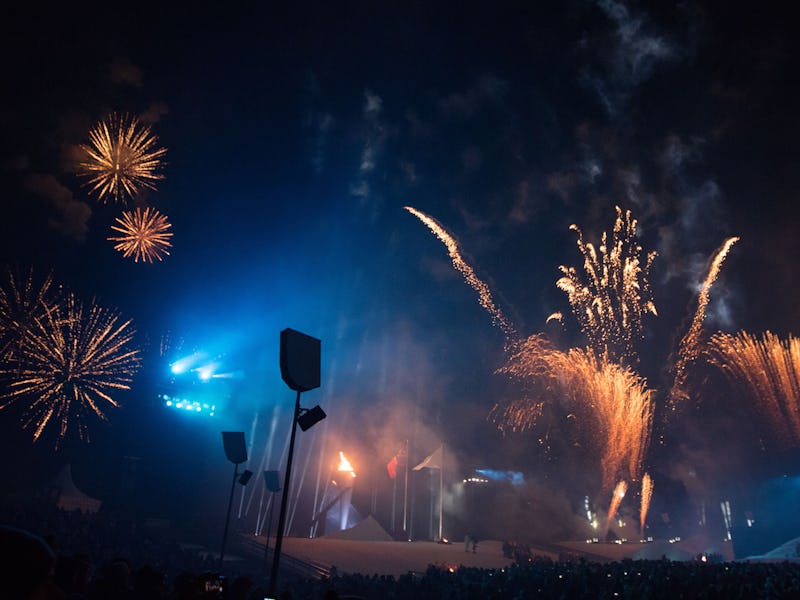Smog May Finally End China's 900-Years of Fireworks
China's air quality is so bad cities are banning the pyrotechnics.

The Year of the Monkey is supposed to lively, playful, and quick. Now we can add “uncharacteristically quiet” and “hopefully easier to breathe during” after Chinese authorities have urged people to set off fewer fireworks because of the country’s toxic levels air pollution.
With 138 Chinese cities now banning the traditional pyrotechnics and 536 others curbing the number of vendors allowed to operate, fewer fireworks were set off across the country over the Lunar New Year. Roughly two-thirds of people polled in 35 major cities were in favor of a fireworks ban over New Year’s, or Spring festival as it’s called in China, and so will likely be fine with an overall reduction of explosions that let sanitation workers clean up 80 percent less fireworks waste over the last year.
For nearly a millennium, China’s coordinated launch of skyrockets, Roman candles, and flying fish were meant to bring luck and chase away evil spirits and any chance at a peaceful night’s sleep. Unfortunately, they also spiked the already-dangerous levels of smog and toxins in the air, and leaves a lingering odor of gun powder for days after.
According to U.S. Embassy figures, Beijing’s PM 2.5 particulate pollution (the level most harmful to human health) increased 15 times over during last year’s celebration. Exposure to that amount of poison can cause health problems like nonfatal heart attacks, an irregular heartbeat, aggravated asthma, and a decreased lung function, among other respiratory problems. Even with the fireworks restrictions, China warned children and elderly to stay indoors ahead of the celebrations.
Even though it’s a buzzkill, China’s long overdue for some changes to improve its air quality as it remains the world’s leading producer of greenhouse gas emissions. You don’t even want to ask them how much coal they’re burning. Like, seriously, don’t ask them.